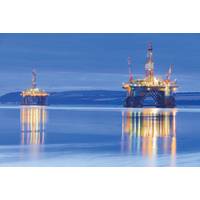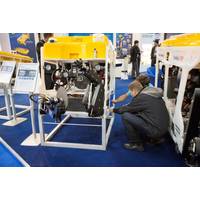MTS, SUT to Collaborate
The Marine Technology Society and the Society for Underwater Technology announced that they have entered into a three-year Memorandum of Agreement to explore ways to work together to the benefit of their collective membership.Both SUT and MTS focus on the facilitation, development, and application of marine science and technology for purposes of exploration, understanding, and sustainable use of the ocean and its resources. From their origins in the USA and the UK…
Rebuilding Confidence in Reactivated DP Assets

The offshore energy sector, like any industry, is constantly subject to market cycles. Challenging conditions may lower demand, resulting in a significant number of resources such as offshore support vessels (OSVs) and drillships being deactivated for potentially extended periods. Over time, however, cycles reverse and demand increases for these same assets.Operators reduced expenditures on offshore exploration and production activities, with a subsequent lower demand for these offshore assets…
MTS Tech Surge Presents Production of Renewable Ocean Energy
November 2-3, 2016, experts in the field of ocean energy are gathering to share their knowledge of ocean energy generation and how it can be harnessed to benefit non-grid connected users. There are plenty of places on earth that require power, but are nowhere near an electrical grid system. They principally use diesel generators that spew hydrocarbons into the air and cost a lot to transport to the sites. Harnessing power from the sea and from moving water obviously has been around forever.
OTC Names 2016 Award Winners
The 2016 Offshore Technology Conference (OTC) will honor this year’s Distinguished Achievement Award recipients on Tuesday, 3 May, in Houston. As part of the OTC Distinguished Achievement Awards Luncheon, the conference will recognize Robert (Don) Vardeman of Anadarko Petroleum Corporation for individual achievement, the Marine Technology Society Dynamic Positioning Committee for institutional achievement, and both George Hirasaki and Yuri Makogon with its Heritage Award.
OI 2016 Preview: Hydrography, Geophysics & Geotechnics

Hydrography, geophysics and geotechnics lie at the heart of Oceanology International, the world’s largest marine science and ocean technology exhibition and conference, (ExCeL London, UK 15-17 March), and this year’s conference session at OI 2016 shows just how relevant the topics continue to be. “This year’s Hydrography, Geophysics and Geotechnics session will be split into two themes,” explains Chairman Andy Hill, Marine Geohazard Technical Authority…
BSEE Issues Alert on DP System Failure
Dynamic positioning system failures on offshore supply vessels engage in oil and gas operations in the U.S. The U.S. Bureau of Safety and Environmental Enforcement (BSEE) has issued a Joint Safety Alert addressing a dynamic positioning (DP) incident involving an offshore supply vessel (OSV) which resulted in a loss of position while conducting a critical Outer Continental Shelf (OCS) activity. The OSV was attached to a wellhead, lost position and severed the wellhead tree causing a lubricant release on the platform deck and to the environment.
USCG: Oil Spill in US Waters Averted
The United States Coast Guard and the U.S. Bureau of Safety and Environmental Enforcement released a joint safety alert today in response to an incident in which an Offshore Supply Vessel (OSV) experienced a loss of position while conducting a critical Outer Continental Shelf (OCS) activity. The OSV in question was attached to a wellhead, lost position and severed the wellhead tree causing a lubricant release on the platform deck and to the environment, according to the safety alert, which didn't specify the vessel in question or the location of the incident.
Joint Safety Alert: DPS Failure on Vessels
Discussion: This Joint Safety Alert addresses a dynamic positioning (DP) incident on a vessel resulting in a loss of position while conducting a critical Outer Continental Shelf (OCS) activity. An equipment failure, an operational error and multiple failure modes not identified in the vessel’s Failure Modes and Effects Analysis (FMEA) combined to produce the loss of position. The OCS activity – well operations that introduced hydrocarbon flow from a well to the vessel – was critical because of the potential for loss of position to result in personal injury…
DP Failures on Mobile Offshore Drilling Units
In two recent incidents, dynamically positioned drillships lost functional thrusters due to an electrical disturbance when attempting to reconnect a faulty thruster after maintenance. When the thruster was reconnected it was not electrically isolated from other thrusters and the thrusters did not "ride through" the disturbance causing loss of thrust. During these incidents the drillship crews were unable to restore all functional thrusters and as a consequence these drillships lost position and had to initiate the emergency disconnect sequence (EDS).
